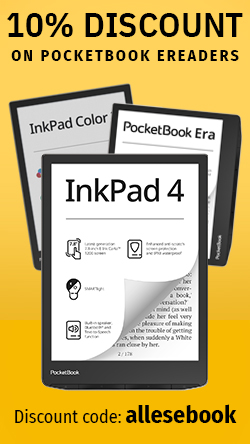Digital Book Lending in the USA: Facing Licensing Challenges and Industry Pushback
 One major advantage of eBooks is how easy they are to acquire. With just a few clicks, you can buy or borrow a book, which has already pushed the eBook sales of many publishers in the USA to over 20 percent. However, at least the convenience of borrowing seems to present a problem for publishers. The eBook lending process in the USA is increasingly running into challenges.
One major advantage of eBooks is how easy they are to acquire. With just a few clicks, you can buy or borrow a book, which has already pushed the eBook sales of many publishers in the USA to over 20 percent. However, at least the convenience of borrowing seems to present a problem for publishers. The eBook lending process in the USA is increasingly running into challenges.
MacMillan and Simon & Schuster have never approved eBook lending, which is manageable. However, HarperCollins already took measures in February 2011 to make lending books more difficult or less attractive for libraries. When an eBook is borrowed 26 times, the library must purchase an additional copy. In the case of regular books, market self-regulation is relied upon, as it’s not uncommon for a library to replace or repair a book after 100+ loans.
Partial Withdrawal of Licensing
The next blow to eBook lending comes from Penguin. The publisher, which still shows a positive balance thanks to its eBook sales, is partially withdrawing the licensing for the lending of eBooks via Overdrive. OverDrive is a service provider for the distribution and organization of digital media. A large number of libraries in the USA use the company’s services. Overall, OverDrive has more than 8,500 partners worldwide and offers over 500,000 digital titles (eBooks, audiobooks, films, and music).
OverDrive describes the situation as follows:
“Last week, Penguin sent a notice to Overdrive indicating that they are reviewing their eBook lending terms. In the meantime, Overdrive has been instructed to suspend the availability of new Penguin books in our library catalog and to disable the ‘Get for Kindle’ functionality for all Penguin books. We apologize for this abrupt change. We are working with Penguin to resolve this issue and hope that Penguin will agree to restore access to their book titles and the Kindle functionality as soon as possible.”
High Entry Fee
A few days ago, Penguin made headlines with another controversial measure. The Penguin program, where authors can self-publish their books, automatically convert them into the appropriate format, and distribute them to the largest eBook stores, requires an entry fee of 300 or 550 US dollars. Other comparable services start at 100 US dollars. In addition, Penguin is seeking a 30 percent commission for each eBook sold. Amazon and Barnes & Noble also take 30 percent – however, Penguin wants the same share just for submitting the eBook there. This is particularly unreasonable, as authors can already self-publish their eBooks there.
Back to book lending. Penguin gave the following statement to The Digital Shift: “Penguin has long been a supporter of libraries, both for physical and digital book editions. We have always valued libraries as a significant link between authors and our readers. Due to new concerns about eBook security, we see the need to restrict the availability of new book titles while we work to resolve these issues with our business partners. Penguin will continue to strive to mediate between readers and authors; with this goal in mind, we will continue to work closely with our business partners and the library sector to realize a secure and practical distribution model. In the meantime, we wish to ensure that new titles in print continue to be available in all libraries.”
The statement is shockingly vague. The security concerns about eBooks seem to be merely a pretext, as otherwise they would have to halt all eBook distribution. Overdrive uses the same DRM system as all major eBook stores. The issue seems to be more of a financial problem.
Unclear Backgrounds
Several factors could be responsible for this new measure by Penguin:
- Penguin wants to charge libraries extra like HarperCollins
- Penguin fears a loss of revenue
- Penguin wants to thwart Amazon due to its unilateral decision regarding eBook lending
Particularly, the disabling of the entire Kindle lending feature at Overdrive seems to indicate unresolved issues with Amazon.
It is also worth noting that all the publishers mentioned here are part of the Big Six. The Big Six are the six largest publishers in the USA: Hachette Book Group, HarperCollins, MacMillan Publishers Ltd, Penguin Group, Random House, and Simon & Schuster.
Here as well, eBook lending is gaining popularity. However, the service provider here is not Overdrive, but Onleihe. With a library card, you can quickly and easily borrow eBooks from your local public library (more about it here). Fortunately, we don’t yet have problems like those in the USA. Nevertheless, the publishing industry struggles to agree on a distribution standard, which is why, for example, a planned eBook lending program by Libreka is currently on hold.
Back to the land of unlimited possibilities: The eBook lending process seems to be generally at risk due to Penguin’s steps, as if a revenue increase is ultimately successful, other publishers might soon follow suit. And who knows how many libraries will want (and be able) to afford such maneuvers.

